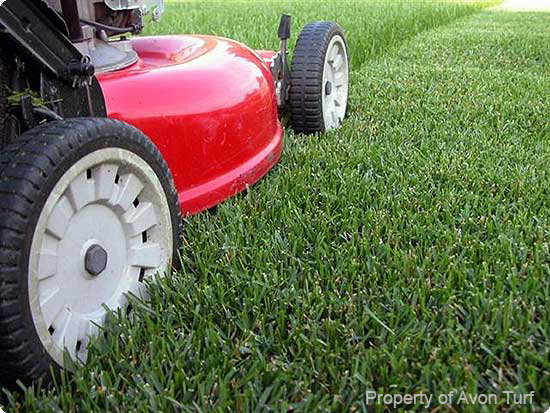
Many lawns are maintained in reasonably good condition for years without any fertilizer treatments, but there are many lawns which would benefit from a little plant food. Often, this is as simple as going to the garden center and buy preparatory lawn feed, the types which are watered in are best., granular varieties may need to be watered in or used just before it rains. All lawns need feeding in order to maintain vigour. When feeding your lawn look out for signs of pests and disease, apply moss killer if required. Regular maintenance is the best way to keep a good lawn,
Feeds high in nitrogen will make the grass greener and grow much faster which means a lot more mowing? A more balanced feed should used at the end of the growing season. Don't cut it short before the winter or you will get moss. The best and cheapest approach to a weed free lawn is good management. A thick, healthy sward created by regular, but not over keen mowing and suitable fertilizer treatments which will resist invasion and spread of weeds.
Don't apply spring or summer specific fertilisers such as chicken manure, high nitrogen or sulphate of ammonia after August. They contain too much nitrogen for autumn use, these encourage green leafy growth at the wrong time of year. Instead use a winter specific feed.
Your turf has been fully weed treated prior to delivery, but some species of weed may take a further week or two to die off. Any odd weeds which survive the treatment should be eradicated by spot treatment with a proprietary weed killer. Sprinkling sand into your lawn will encourage the finer grasses and discourage the spread of weeds
Newl lawns can be fed just like established lawns. They need watering, but should not be over watered, as this will result in shallow rooting developing.
A good mower is essential, the blade must be sharp.